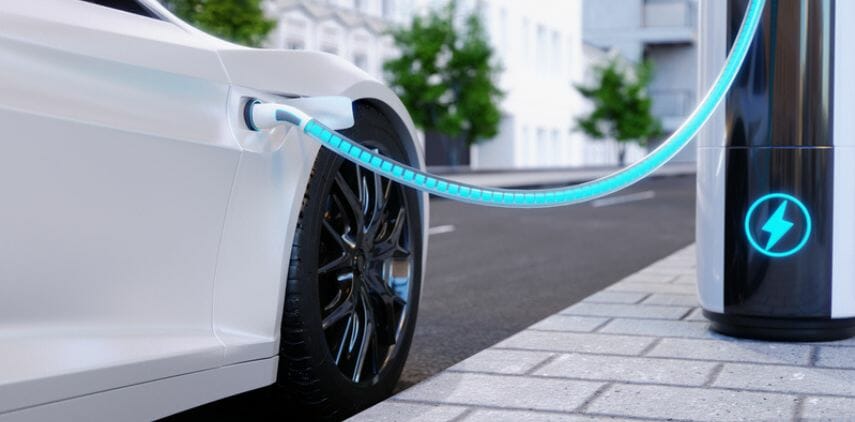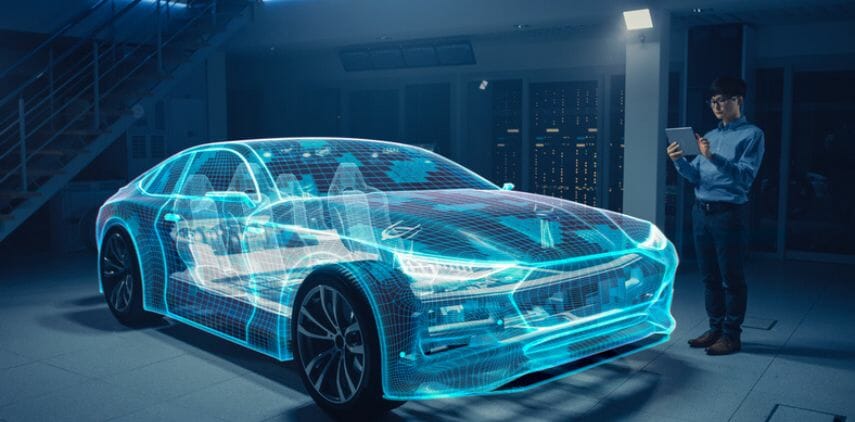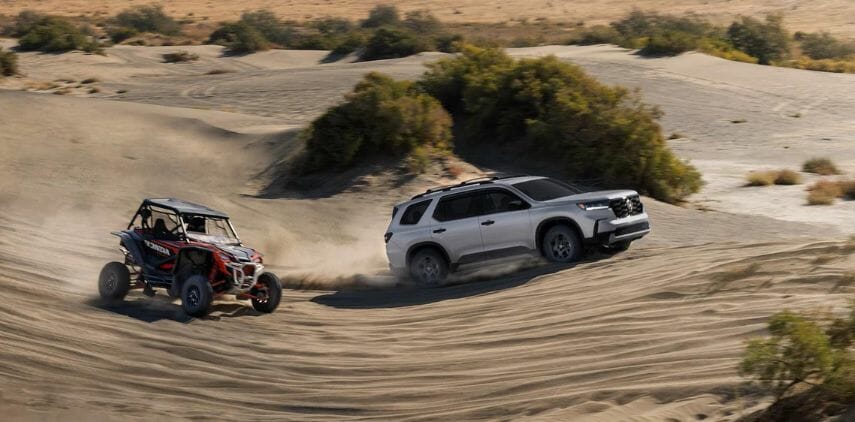Overview
Ever since SUVs hit the market, they have been a popular choice among big families and off-roaders. They are versatile and offer a grand riding experience. For both first-time buyers and experienced car owners, SUVs are a viable choice of vehicle, thanks to the safety, reliability, and stability they have to offer.
In this article, we are delving deep into the world of SUVs to give you detailed information about the different types of SUVs, categorized based on their size and utility.
Table of Contents
What is an SUV?
Before we go into the details, let’s start with the basics of SUVs. SUV is the acronym for Sports Utility Vehicle. This umbrella term takes into consideration a wide variety of vehicles. Starting from the small Volvo XC 40 to the large GMC Yukon, all of these fall into the SUV category.
Features of an SUV:
- Sturdy body
- All-wheel drive
- High seating position
- Towing capacity
- High ground clearance
- Spacious passenger area
- High boot capacity
- Long wheelbase
- Off-road capability
Are SUV and Crossover the same?
The terms crossover and SUV are often used interchangeably, but there are several key differences between the two. Car experts can differentiate the two easily, but for those who are new to the world of four-wheelers, and for first-time buyers, it can cause confusion. To alleviate any misconceptions, let’s check out the basic distinctions between an SUV and its similar-looking distant cousin crossover.
Difference between an SUV and a Crossover
Traditional SUVs are bulky, and quite naturally, more fuel-hungry. As the price of fuel kept soaring high, people started looking for cost-efficient alternatives to heavyweight SUVs. This is where crossovers entered the market. They are lightweight than SUVs, consume considerably less fuel, and are easier to handle.
The fundamental difference between an SUV and a crossover is in its build. SUVs are designed with a body-on-frame structure, whereas crossovers come with a unibody frame. Crossovers use a car’s platform, and SUVs are based on a truck platform.
SUVs are the top choice for serious off-roaders because they offer a great deal of strength, reliability, and power that you need to drive on rough terrains. But if you don’t intend to use your vehicle for highly adventurous purposes, you may very well go for a crossover. Crossovers are definitely not as rugged as SUVs, but they offer a decent ride around the city.
Types of SUVs
When you go vehicle shopping, you’ll find that there are different types of SUVs to choose from. Mini SUV, compact crossover, midsize SUV, full-size, etc are some of the categories based on sizes. If we segregate by additional features and utility, some of the categories are off-road SUVs, luxury SUVs, and so on.
It’s important to remember that these categories sometimes overlap. As there are no strict defining factors for each category, the line between them is often blurred.
Crossover SUVs
Crossover SUVs are popular for offering more comfort and better fuel economy, and that’s why they are always the first preference of car buyers. Based on size, crossovers can be of multiple types, such as subcompact, compact, midsize, and full-size, to mention a few.
Even though there is no real definition to segregate these categories, manufacturers categorize them based on their sizes and types of platforms and market the vehicles accordingly.
The top crossover SUVs in recent times are Hyundai Tucson, Kia Telluride, and Hyundai Palisade.
Mini SUV
Mini SUVs are the tiniest range of utility vehicles. Also referred to as subcompact crossovers, these vehicles are often built on the platform of a subcompact car. These small SUVs are bigger than your regular car and smaller than a compact or full-fledged SUV. Depending on which model you choose, these SUVs can be used for both city rides and light off-roading.
Range Rover Evoque, Volvo XC 40, and Mazda CX-5 are some of the top choices in the small SUV market.
Compact Crossover/ SUVs
These are ideal for customers who want to taste the sportiness of an SUV but do not have a big budget. Compact crossover SUVs are built on a passenger car platform, whereas compact SUVs come with a compact pickup platform.
With a compact SUV, you will get a sturdy vehicle that’s spacious enough, but the boot size is not particularly impressive. They are much more fuel-efficient than regular SUVs, and as they are lighter in weight, handling them is quite easy too.
Some of the popular vehicles of this category are Mazda CX 5, Volkswagen Tiguan, and Honda CR-V.
Mid-Size SUVs
Midsize SUVs are built for adventures. They are robust, equipped with powerful engines, and come with a lot of cargo space. But if you’re not a fan of heavy off-roading, the vehicles work just as fine on city roads as well.
The only drawback of these SUVs is their low fuel economy. Although the consumption is less than full-size SUVs, they are not particularly fuel-efficient either.
Kia Telluride, Chevrolet Traverse, Honda Pilot are some of the top-rated midsize SUVs in recent times.
Full-Size SUVs
When driving through rocky mountains or bumpy roads, a full-size SUV offers the best company. In their build and design, they resemble a truck and offer a similar kind of power and strength. Besides being great at off-roading, full-size SUVs also offer an abundance of space, for both cargo and passengers.
The biggest criticism these vehicles face is their low fuel economy. As they are large in size, they require more power and more fuel to offer a seamless experience. Here you can expect a sporty driving experience, as opposed to the comparatively comfortable and smooth ride offered by crossovers.
GMC Yukon, Chevrolet Tahoe, Chevrolet Suburban are some of the full-size SUVs you can check out.
Luxury SUVs
These are the cream of the lot in the world of SUVs. From a stylized body, luxurious interior to the inclusion of state-of-the-art tech features, luxury SUVs are truly a class apart. They blend in the sporty experience with a touch of exuberance, both in terms of performance and appearance.
A luxury SUV can be of any type– it could be compact, midsize, or full-size, depending on the buyer’s choice.
Off-road SUVs
This is not a separate category of SUVs. Sport Utility Vehicles entered the market primarily to offer a better and more convenient off-road experience, but not every SUV has the capacity to do so. Off-road vehicles can drive through roads full of gravel and rocks effortlessly, so they are mostly used in adventurous terrains. They also come with a high towing capacity. Their truck-based chassis, powerful engine, high towing capacity, high ground clearance, and strong grip make them extremely popular among travelers and adventure buffs.
Difference in performance
Based on the size of the SUV you choose, there will be some differences in performance. It’s a fact that SUVs are not as agile as smaller-size vehicles, but they compensate with their power, reliability, and off-roading capacity. Small and compact vehicles are lightweight, easy to handle, tend to be the fastest SUV type and also offer better fuel economy– but performance-wise, they are not at par with midsize or large SUVs.
So while buying an SUV, it’s important to keep the utility of the vehicles in mind and match them with your requirements. If you’re looking for a smooth and fast driving experience, you can opt for a smaller size vehicle, but if off-roading is your primary goal, then going for the bigger vehicles would offer more value and practicality.
There are many types of SUVs based on their sizes, such as small SUV, compact SUV, midsize SUV, and full-size SUV.
[/dipl_faq_page_schema_item][dipl_faq_page_schema_item faq_question=”Which SUV is the best to buy?” _builder_version=”4.11.2″ _module_preset=”default” question_heading_level=”h3″ global_colors_info=”{}”]
For those looking for better grip and excellent off-road experience, a midsize SUV or a full-size SUV would be a good choice. Small and midsize SUVs are good for low budgets and offer a moderately sporty experience.
[/dipl_faq_page_schema_item][dipl_faq_page_schema_item faq_question=”Should I buy an SUV or a Crossover?” _builder_version=”4.11.2″ _module_preset=”default” question_heading_level=”h3″ global_colors_info=”{}”]
The primary difference between an SUV and a crossover is the chassis. Crossovers get a car platform, whereas SUVs get a truck platform. Quite naturally, SUVs offer more stability, power, and grip during your off-road adventures. But if you’re not the adventurous type and you plan to use your vehicle primarily for driving through city roads, you can also opt for crossovers.
[/dipl_faq_page_schema_item][dipl_faq_page_schema_item faq_question=”Are Crossovers cheaper than SUVs?” _builder_version=”4.11.2″ _module_preset=”default” question_heading_level=”h3″ global_colors_info=”{}”]
This entirely depends on the brand and the specific model you choose. However, in most cases, crossovers are available at a considerably lower price than a traditional full-size SUV.
[/dipl_faq_page_schema_item][dipl_faq_page_schema_item faq_question=”What is the cheapest crossover?” _builder_version=”4.11.2″ _module_preset=”default” question_heading_level=”h3″ global_colors_info=”{}”]
The cheapest crossover is Chevrolet Trailblazer (trim L).
[/dipl_faq_page_schema_item][dipl_faq_page_schema_item faq_question=”What is the advantage of a crossover vehicle?” _builder_version=”4.11.2″ _module_preset=”default” question_heading_level=”h3″ global_colors_info=”{}”]
- Crossovers offer better fuel economy than SUVs
- Less expensive than SUVs
- Lightweight and easy to handle
- Comfortable to ride on city roads
[/dipl_faq_page_schema_item][dipl_faq_page_schema_item faq_question=”Who needs to buy an SUV?” _builder_version=”4.11.2″ _module_preset=”default” question_heading_level=”h3″ global_colors_info=”{}”]
SUVs are a suitable choice for off-roaders, big families, and for those who want to have a sporty riding experience, rather than a smooth one.
[/dipl_faq_page_schema_item][/dipl_faq_page_schema]






